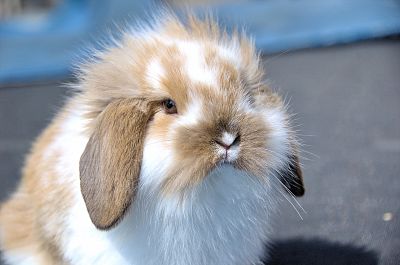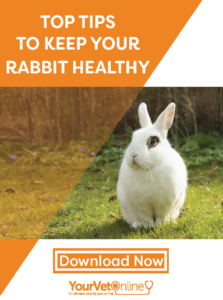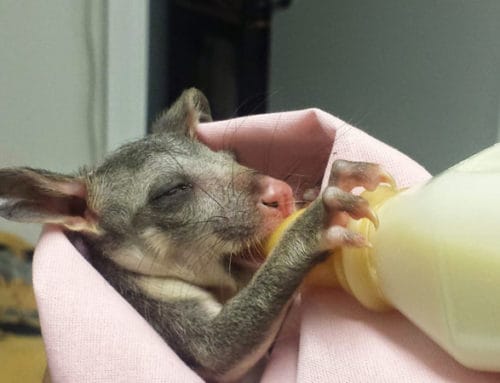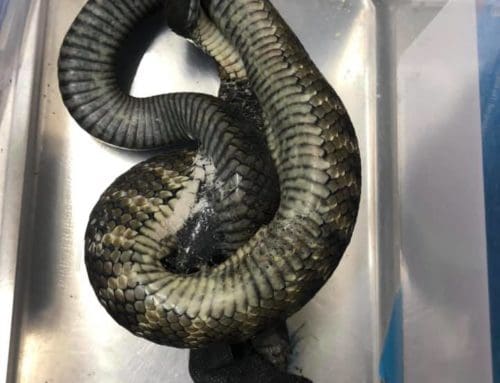How To Keep Your Rabbit Healthy & Happy
Rabbits are an increasingly popular pet, particularly in our time-poor society.
However, contrary to popular belief they are not a pet that can be thrown some food and forgotten about.
Rabbits need time, care, and attention.
Rabbits are prone to a few health conditions that if not acted upon immediately, can result in death.
If you are considering getting a rabbit for a pet, or have one already, read on for the top things you need to consider to keep your rabbit healthy and happy.

Vaccinations Rabbits Need
Calicivirus
Rabbit calicivirus is a devastating disease that results in death.
Your pet needs to start with 2 vaccines a month apart, then annual boosters to ensure adequate immunity.
Myxomatosis
Unfortunately, there is no vaccine to prevent myxomatosis in rabbits.
Keeping your rabbit as a house pet only and using mosquito netting around their hutch can help prevent this disease.
Fleas, Mites & Lice
Rabbits are affected by external parasites such as fleas, mites and lice just like cats and dogs.
Products such as Advocate, Advantage and Revolution applied as per the label can prevent this (don’t use Frontline).
Vacuuming and washing bedding will also help keep these under control.
What To Feed A Rabbit
Rabbit digestion can be a little fickle.
They require a high fibre diet with minimal carbohydrates and protein.
It is best to feed a diet consisting of:
- 70% quality Timothy grass hay (not lucerne)
- 20% leafy greens such as kale, broccoli or cabbage.
- Keep carrots and fruits as occasional treats as they are quite fattening.
- 10% quality pellets specially formulated for rabbits.
- Not all products are balanced, please contact us for a list of reputable brands.
Rabbits can suffer from a condition called gut stasis which can, if not treated appropriately, result in death.
If your rabbit goes off its food, becomes depressed and stops producing faeces, please see your vet immediately.
Dental Care For Rabbits
Unlike dogs, cats and humans, rabbit teeth grow continuously.
For that reason, they need a yearly dental check-up to ensure that there are no problems and to trim the teeth if necessary.
If this isn’t done, then painful abscesses and jaw fractures can result.
Desexing Rabbits
Spaying or neutering your rabbit not only prevents unwanted pregnancies it can help calm them and make them less aggressive.
Female rabbits are susceptible to uterine cancer, so spaying can reduce the incidence of this by up to 80%.
Book your young rabbits for desexing between four and six months of age.
Aggression is terrible between same-sex rabbits, avoid keeping them entire for this reason. i.e. female/female or male/male.
Check with your local vet for the sex of your rabbit….a lot of mistakes are made!
Housing
Keeping rabbits indoors prevents exposure to predators and can lessen the likelihood of catching calicivirus and myxomatosis.
They still require their own area for sleeping and toileting (they can be trained to go in a tray!).
Outdoor hutches need to be big enough so your rabbit can get adequate exercise.
Provide toys and things to do so that they are not bored.
Use mosquito netting over the hutch to prevent mosquitoes.
Rabbits and guinea pigs don’t make good flatmates!
Always supervise when loose with dogs or cats, better still, don’t let them out together, it only takes a moment for disaster.
Handling
Rabbits often wriggle and occasionally will flip out!
They have been known to flip and break their own backs.
This is one of the reasons (the other being aggression) why rabbits don’t make great pets for children.
Extreme care is required when holding and if possible, handle on the floor.
When holding your rabbit, always support its bottom.
Pick up by sliding one hand under their ribs and wrapping your fingers around their front legs. Lift and slide your other hand under their bottom. They should have their legs facing away from you.
Check Rabbits Daily
Every day take note of how much and what types of food they are eating
are they leaving the pellets?
Are they only eating hay?
Watch how much they drink – it is best to measure this.
It can be difficult when more than one bunny shares an area.
Get to know your bunny’s poo!
Learn what is normal for them – colour, form (soft, hard) and amount (a normal rabbit will produce 100-150 faecal pellets a day).
Observe your rabbit’s urine.
Rabbit urine can change colour depending on diet. If worried, please contact your vet.
- Once a week run your hands over their ribs and spine.
- Are they more prominent (skinny)? Or can you not feel anything (fat)?





I like how you mentioned the importance of dental care for rabbits. I think that it would also be essential to find a great groomer for your rabbit. My sister got a rabbit so I will pass these tips along to her.
Thanks so much for your comment Charlotte. Yes grooming is also essential! I hope your sister enjoys this too.